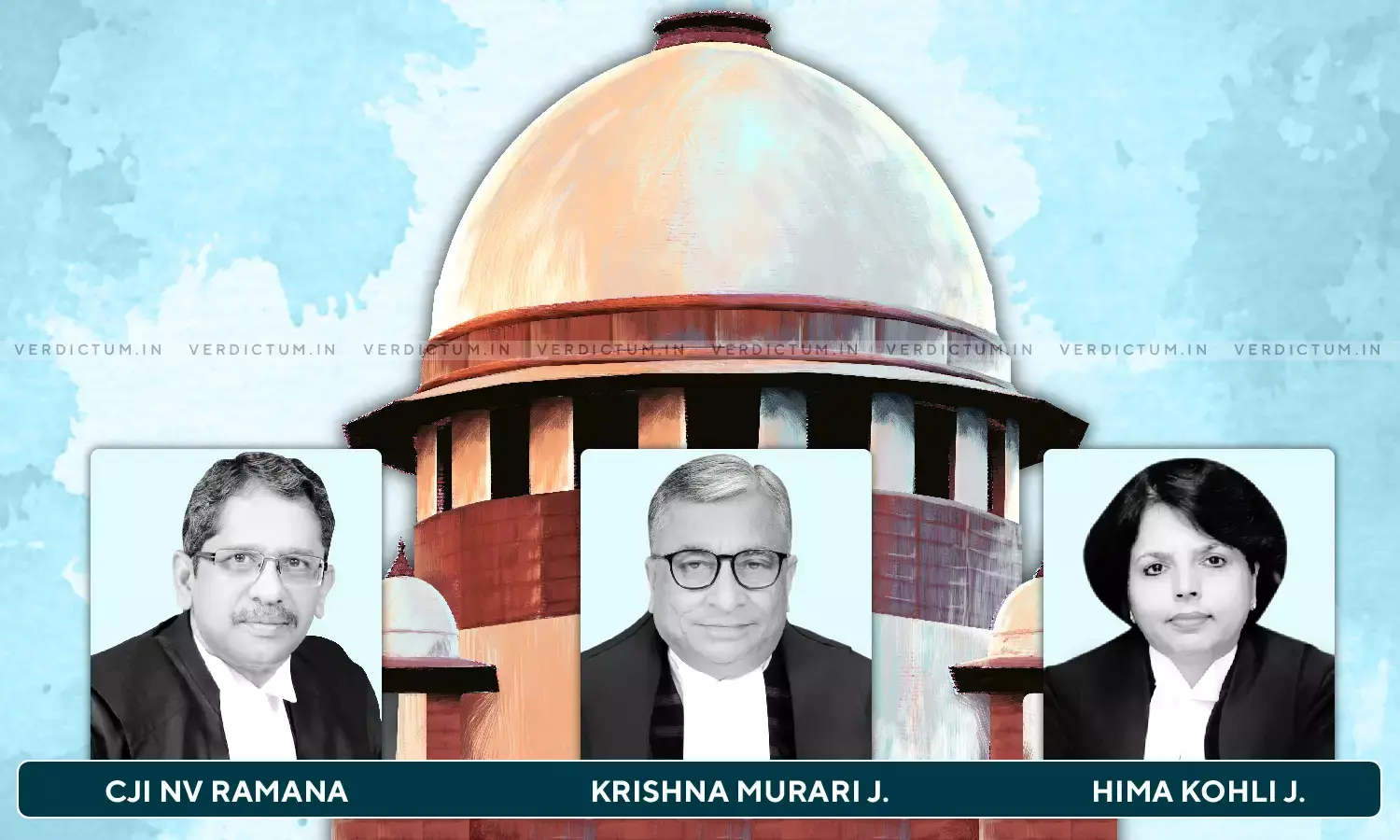Narrow Parameters Of Bail Available U/s. 37 NDPS Act Not Satisfied - SC Reverses HC's Order Granting Post-Arrest Bail
Narrow Parameters Of Bail Available U/s. 37 NDPS Act Not Satisfied - SC Reverses HC's Order Granting Post-Arrest Bail
A Supreme Court Bench of Chief Justice NV Ramana, Justice Krishna Murari, and Justice Hima Kohli heard an Appeal preferred by the NCB.
The Appeal was against the judgment passed by the Delhi High Court granting post-arrest bail to the Respondent who is facing trial for the offence under Sections 8/22 and 29 of the Narcotic Drugs and Psychotropic Substances Act, 1985.
The Supreme Court set aside the order releasing the Respondent on post-arrest bail, and held that "In our opinion the narrow parameters of bail available under Section 37 of the Act, have not been satisfied in the facts of the instant case. At this stage, it is not safe to conclude that the respondent has successfully demonstrated that there are reasonable grounds to believe that he is not guilty of the offence alleged against him, for him to have been admitted to bail."
Additional Solicitor General Mr. Jayant K Sud appeared for the NCB. AoR Mr. PK Jain appeared for the Respondent.
In this case, the NCB received secret information that a parcel which was suspected to contain NRX tablets (narcotic drug) was stored at the godown of a courier company. On conducting search proceedings, 50,000 Tramadol tablets weighing 20 kgs were recovered.
In his statement recorded under Section 67 of the NDPS Act, the Respondent disclosed that he had been illegally selling and purchasing the tablets and capsules. After being taken into custody, the Respondent moved two applications for grant of bail before the Special Judge, NDPS. The applications were rejected.
However, the Respondent was granted bail by the Single Judge of the High Court.
The Supreme Court opined that the High Court could not be faulted for holding that the NCB could not have relied on confessional statements, in light of law laid down in Tofan Singh v. State of Tamil Nadu, which states that a confessional statement recorded under Section 67 of the NDPS Act has been held to be inadmissible in the trial of an offence under the NDPS Act.
However, the Supreme Court also noted that the confessions were not the only material that the NCB had relied upon to oppose the bail application. The NCB had specifically stated that it was the disclosures by the Respondent that led the NCB team to arrive at and raid the godown. Further, the CDR details of the mobile phones of all co-accused including the Respondent showed that they were in touch with each other.
Opining that the High Court should not have exercised its discretion in favour of the Respondent, the Supreme Court said that "the other circumstantial evidence brought on record by the appellant-NCB ought to have dissuaded the High Court from exercising its discretion in favour of the respondent and concluding that there were reasonable grounds to justify that he was not guilty of such an offence under the NDPS Act."
The Court held that the parameters of bail had not been satisfied in the facts of the case, and it could not be concluded that there were reasonable grounds to believe that the Respondent was not guilty of the offence alleged against him.
Therefore, the Supreme Court quashed the order which released the Respondent on post-arrest bail and directed that he be taken into custody.
Click here to read/download the Judgment




